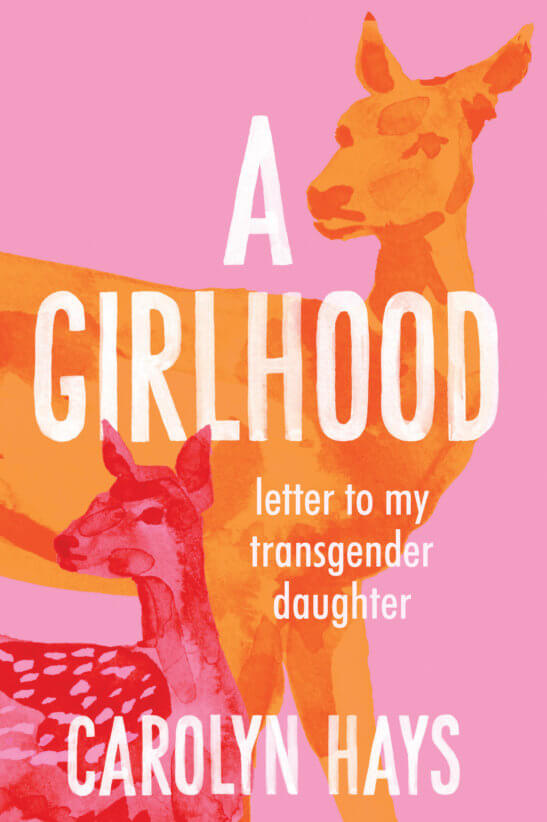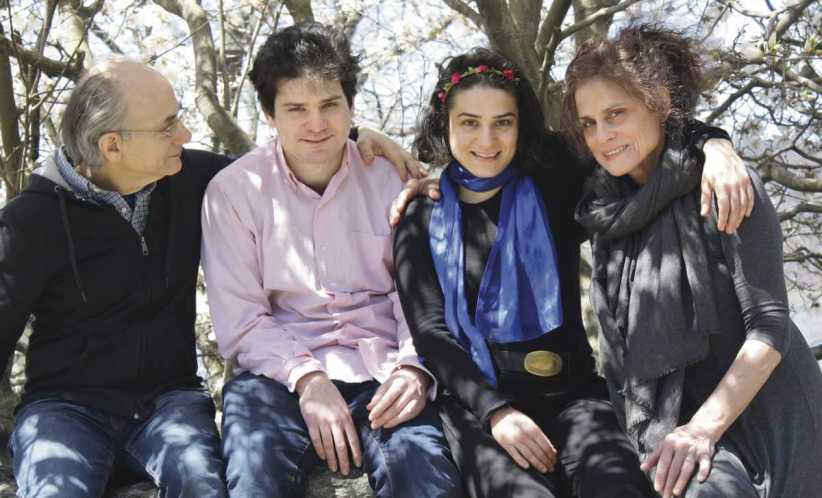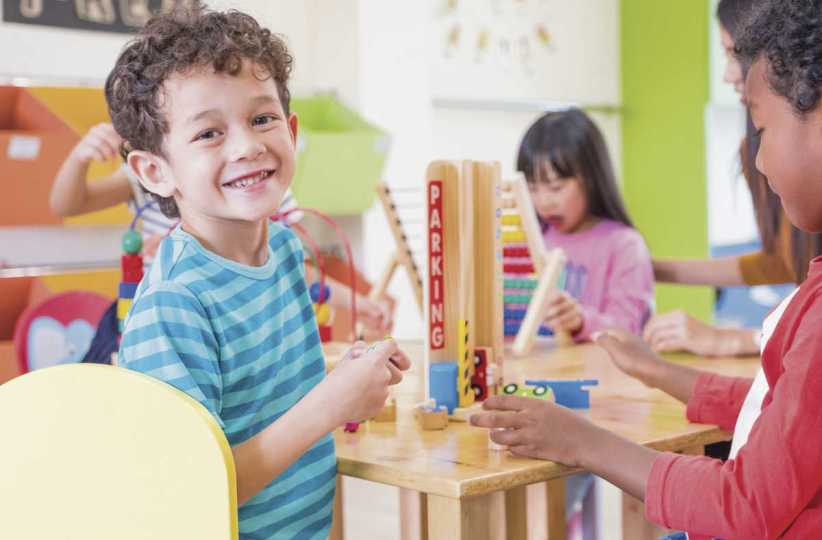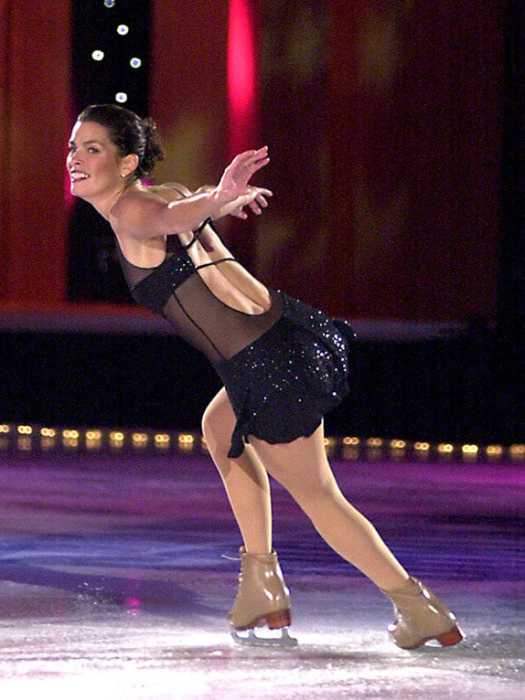
Author Carolyn Hays on “A Girlhood: Letter to My Transgender Daughter”
Everything in the lives of the Hays family changed when a worker from the Department of Children and Families knocked on their door on an otherwise ordinary day. There to investigate a complaint about how Carolyn Hays and her husband were raising their transgender daughter, the knock set off the family’s journey out of the Bible Belt.
A Girlhood: Letter to My Transgender Daughter is a gripping and intimate story by Carolyn Hays written to her daughter. The book tells the family’s story in their support for their transgender daughter and offers insight from Carolyn’s perspective as a mother.
We sat down with author Carolyn Hays to talk about A Girlhood, her family’s journey, and more.
Psst… Check Out Rosh Hashanah Events Roundup
A Girlhood is a very personal story about your family, specifically your transgender daughter, and your community. What inspired you to write this story down and put it out there for the world to read?
I am a writer, so I’ve published many other books and I was working on those books while I was living this story. I knew that what I was living was far more beautiful and terrifying and gripping than the fiction that I was actually writing at the time.
But I also knew that I couldn’t write it, for a lot of reasons, while it was happening. And so, time passed, my daughter got old enough to talk about the book and give her okay to publishing it, and I processed a lot more of it. I felt more centered. And the world for trans people in this country was contracting. We’d had this really positive phase, and then America’s heart just contracted really hard against trans people on a legislative level and in a lot of different ways. So it felt more urgent to tell the story.
What was the final push that convinced you to tell this story? Was it something on a personal level, things happening in the world, or a combination of the two?
I think figuring out that it was written to her. Because before that, I really wasn’t sure of audience and when you’re not sure of audience, it’s really hard to write a book. So I would make these false starts. I wouldn’t know whether the person reading this book would be a trans person in adulthood or whether it was a grandmother who knew nothing about the trans experience but had a grandchild who was transitioning. It was impossible to write for all of my imagined audiences. So when I realized, “no, no, no: this is a book written from me to her,” it clarified everything and then I could finally sit down and write it.
The story’s incredibly powerful, especially because it’s written as a letter to your daughter. What was it like, as her mother, writing this story down as a letter to your daughter?
A lot of it she doesn’t have particularly strong memories about, whereas my husband and I and her older brothers and sisters really remember it very clearly. And it’s so strange because the biggest thing to happen to our family was about her, and yet we swirled around her. It was an orbit, we were in orbit around her, but it didn’t affect her very much at that time. It changed everything in our lives. We completely changed our lives from then on. It changed how we thought of the world and our place in it.
Obviously it was emotional and there’s certain sections that I cried while writing it. But also, it really felt good to finally have a form to fit everything in, because I’ve been collecting all these personal stories, but also all these stories throughout history and all my feelings about religion and faith and everything from botany to the trans man who perfected the C-section. All these things that I’d learned, I finally had a place to put them. I had been holding a lot in for a long time, and this was a relief.
I like the description of everything happening swirling or orbiting around your daughter, even though a lot of these big changes were about her. What was it like trying to have these changes happen while also, as a mother, trying to protect her from things that were happening?
I think that there’s different periods. When somebody knocked on our door to let us know that we were under investigation, solely because we were supporting our trans daughter, I was singularly focused. We had to make it clear that we were good parents and loving parents so that it wouldn’t go into the court system and potentially we could have lost custody. So we were solely focused on that and all of us rallying around to protect her and us as a family.
Then once that fear was put to rest, then I was focused on getting us out of the South. How do we land? Where do we land? Look at the country: what’s a good place to raise this child, and really think about our other kids. I track how the other kids were handling this throughout, because it really changed their lives profoundly.
When the governor of Texas, for example, this spring tried to make what happened to us the law, that any family that’s supporting their transgender child should be investigated: when he made that a law, I don’t think he understood that what he’s really doing is ripping families apart, and also ripping communities apart. We were terrified and heartbroken, but all of the people in our circle, in our various circles – youth soccer to the kids’ school friends to people in the faith community, the church we attended, to people on our street – it really gutted a lot of people. It was to watch. And not knowing who made that call also made it very hard to hear because we couldn’t go to that person and explain what it is to be trans, we’re following best practices, we’ve done research. We couldn’t do any education or even just show compassion and love for that person, which felt so important to me, and I couldn’t have that.
You mentioned that because you don’t know who made the call, you can’t educate them and show them love and compassion. That’s interesting that that’s your response to this person who made the call.
I think there’s a person who made that call, logically it makes sense to me, that they were someone who knew somebody or who was carrying something. It had to be personal.
Anger would be a natural reaction, and certainly my husband was angry, and no one would blame him for that. But I just felt like as a mother, I wasn’t allowed to be angry. It wasn’t an emotion that would be helpful in this situation. I just wasn’t granted access to it.
It’s not that I haven’t been angry since, I certainly have been angry since at different times. It’s strange, I’m not the most patient person in the world in my day-to-day life. But when it comes to this, something comes over me when I’m talking to someone who’s really opposed or has very negative, even hostile feelings towards trans people. I can get in this mode that, as long as they have a tiny bit of openness, I at least want to try to reach them. Sometimes it’s obvious that there’s nothing you can do, but anger has not been my go to, which surprises me.
One of the things that comes across in the book is faith and religion and how that intersects with, and sometimes contradicts, other beliefs, like support of trans people. This was especially evident in the fact that your daughter was banned from all Catholic high schools in the diocese. How have you grappled with your faith and position in the church along these lines, especially given the church’s general stance on trans people?
It’s been an incredible journey in terms of looking at what God created in the incredible architecture of the human brain. What happens as we form in utero, how gender gets created on a genetic level, on a neurological level, on an endocrine level. All of that, it’s beautiful, gorgeous, complicated, and not two boxes, one marked M and one marked F. It’s so much grander than that. And so for me, all of that has been about looking at the complexity of the beautiful artistry of what God has created in us. It’s been a journey for me, in terms of faith, that’s been incredibly grounding and very much jives with what I was taught as a Catholic.
We’ve gotten incredible support from nuns and our family priest, but what’s really strange is when I bump up against religious doctrine, which is just the opposite of what we would expect.
I really looked at that Vatican document on gender and found as many entry points of love and acceptance as I possibly could to try to meet them, and then hit a brick wall with conversations with the superintendent of the diocese of schools where I now live who did not meet us halfway.
But also, I’ve tried to keep that door open as much as possible with him, even though he banned our daughter from all the Catholic schools in the district. I kept that door open because I know that he has trans kids in those schools. They have trans adults who attended those schools who have now transitioned. And I know that when you really look at faith, there’s incredible acceptance and love. But I think that they’re going to need me one day, or families like ours to help them in a crisis, and I’m here for that support still. I always want to keep those doors open.
As you mentioned earlier, this country went through a big period of acceptance towards trans individuals, but more recently America’s heart has been contracting. What was it like to tell your story against this backdrop when there’s so much happening in terms of legislation, specifically for trans adolescents?
It’s kind of terrifying, to be honest. People have gotten really irrational. I think about the bomb threats against Boston Children’s Hospital last week. People have kind of associated them with this misinformation campaign about how trans kids get treatment and care at Boston Children’s. But I think about the people who actually sent a bomb threat to a hospital where children are fighting for their lives. Children with leukemia, whose bone marrow transplant surgeries were stopped that day. Procedures for children who are fighting for their lives stopped that day because of these people who had just become so irrational about trans kids, having been fed misinformation. And I think about those people, that they would also be the ones in their community who, if a kid was sick with cancer in their community, they would make the lasagnas and go over there and try to raise money for that family to pay their medical bills. There’s so much fear mongering targeting them that they did this horrific thing.
When I think about how irrational people can be when it comes to gender and when it comes to trans people in their lives, it’s scary to put a book out in the world right now about it. But it’s also more urgent than ever. Because people have to remember that they’re real families, real human beings, real kids, not ideas, not things that are made up.











